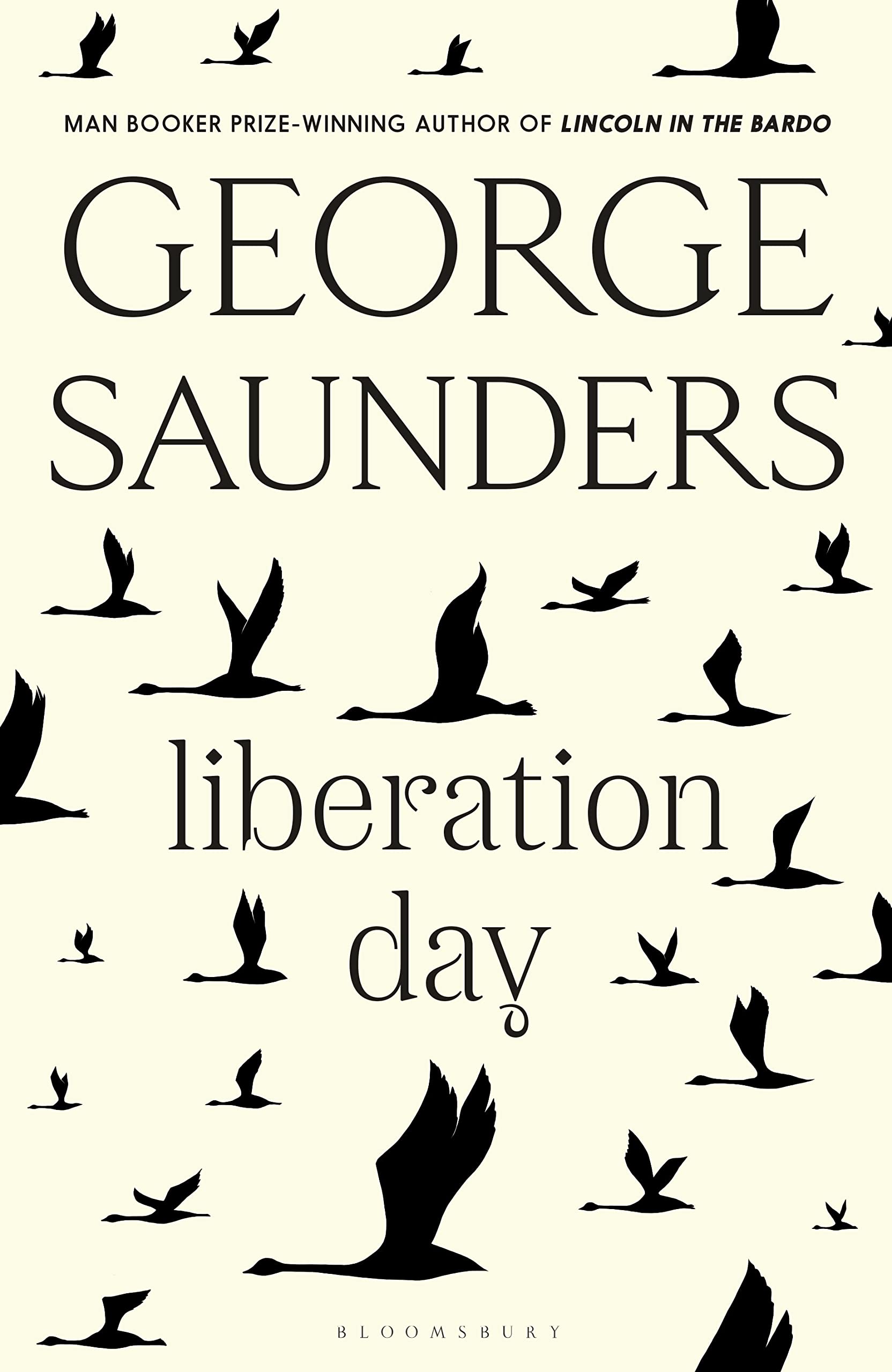
In 2017, George Saunders had a dream. The author – named “the best short-story writer in English” by Time – had just published his first novel, Lincoln in the Bardo, a profound and beautiful work about Abraham Lincoln’s grief over the death of his son Willie in 1862, unconventionally told by a chorus of spectral voices. It was to prove a Booker Prize-winning, internationally bestselling hit, but, for Saunders, there was one problem: he had no idea what to write next. “This is going well,” he remembers thinking. “Now I’ll f*** it up.” One night the answer came to him as he slept: a fully realised vision of his next major project. Rolling over, he scrawled down the title on his bedside table before peacefully returning to contented sleep. “When I woke up, it said: Custer in the Bardo,” recalls Saunders, chuckling ruefully. “I thought wait a minute, you can’t do that!”
The idea of doing a straightforward sequel featuring the famously doomed US cavalry commander General George Custer was hardly likely to tempt Saunders. A writer known as much for his formal inventiveness as the sharpness of his satirical wit, Saunders rarely repeats himself. His stories, such as 2010’s “Escape From Spiderhead”, which was recently adapted into the sci-fi thriller Spiderhead, build idiosyncratic worlds which take time to reveal their true nature. Still, the idea of writing about Custer stayed with him. He’s long been fascinated by the popular mythology that surrounds Custer’s Last Stand at the Battle of the Little Bighorn in 1876, where US troops were comprehensively defeated by the combined forces of Lakota Sioux, Northern Cheyenne and Arapaho Native Americans. Custer has become an evocative historical figure, despite the fact that he and his men were, as Saunders puts it, “slaughtered basically from inefficiency, disorganisation and hubris”.
For a time, “Custer” was also Saunders’ nickname. In the late Eighties, the author was studying for his master’s in creative writing at Syracuse University in New York, where he now teaches. Back then, a poetry teacher took to calling him by the name of the ill-fated general on account of his “long, mullet-ish haircut”, a look which set him apart from his Ivy League peers. When we meet for coffee on a blisteringly hot day in Santa Monica, I can still see the resemblance. Saunders is a youthful 63, with a neat chestnut beard and a black Chicago White Sox baseball cap in place of Custer’s wide-brimmed felt hat. He describes his writing process with the warmth and enthusiasm of a beginner. “I thought it would be fun to try and do something like the Lincoln book, where you present the whole day [of the battle],” says Saunders, “But if you already know what you want it to be like, it’s boring. You have to be open to the surprise.”
Saunders’ solution is certainly unexpected. In “Liberation Day”, the title tale from his first short-story collection since 2013’s Folio Prize-winning Tenth of December, Custer’s Last Stand is retold by a team of human “speakers”. Sometime in the near future, these unfortunate souls find themselves under the control of a hobbyist who keeps them “pinioned” to a three-story-high “Speaking Wall”. They become little more than high-functioning stereo parts, with all memory of their lives prior to their performance wiped. While Saunders’ story explores the ethics of this dystopian sound system, it resists easy answers. “As I’m getting older, I’ve noticed a tendency in my earlier work to figure out who was right and back that horse,” says Saunders. “In this book, maybe because of all the s*** that has gone on in the world, I just felt: Let’s not back any horses. In a sense, the whole ethos of the story becomes: let’s contradict ourselves. Can we still live if we don’t have a hard and fast position?”
For Saunders, this uncertainty is a product of engaging with his writing as a constant process of discovery. “At 63, your natural urge is to go, ‘I got it’,” he says. “That’s death. The life demands that you seem to know what you’re talking about, and also just being older you think, ‘God, I’ve lived all this time, I must have figured something out.’ No, you haven’t. Maybe that’s true in other things, like plumbing or fixing a car, but in art you really have to be a baby all the time.”
Saunders was born in Amarillo, Texas, in 1958; he studied geophysical engineering at the Colorado School of Mines, and came to fiction relatively late. In his 2021 book on writing, A Swim in a Pond in the Rain, he describes the transformative experience of reading John Steinbeck’s great depression-set masterpiece The Grapes of Wrath while he was a young man working near Amarillo as a “jug hustler”, part of the team who carried out seismographing in the search for oil. “I was a real Ayn Rand Republican at that point,” he explains, describing his nascent philosophy as “Just work for it”. That was until he got a taste of the harshness of working life. “It’s not really demeaning, but it sucked the grace out of you,” he says. “Then to read Steinbeck and go, ‘Oh, OK, socialism – aha!’ I understand it as a desire of the heart now.” Recognising the lives of himself and his co-workers in the novel nudged his political compass to the left. “It’s not just a system, but an urgent, necessary thing,” he adds. “It’s good to have the real world intrude on your ideas.”
In art, you really have to be a baby all the time
A Swim in a Pond in the Rain was adapted from Saunders’ two decades worth of experience teaching a class at Syracuse on the Russian masters of the short story: Chekhov, Turgenev, Tolstoy and Gogol. In those authors, Saunders detected a similar desire as in Steinbeck’s work to tell stories that have the power to reorient us as human beings, and to remind us what’s most important in life. “The Russians feel the same way, that [their stories aren’t] just decorative embroidery,” says Saunders. “It’s part of your essential moral relationship to the world to see how it was in other times and places and then, you know, adjust.”

Our contemporary political malaise finds its way into Liberation Day in both subtle and obvious ways. “Love Letter”, an epistolary story told from the perspective of a grandfather writing to his grandson about the rise of totalitarianism under a “clownish” autocrat, was first published in the New Yorker in 2020 during the Trump presidency. Saunders agrees it’s “barely fiction”. It was inspired by his own agonising over whether he was active enough in speaking out. “I’ve often said, ‘Don’t put politics in your story’. But I’m very political in my own mind.” In “Love Letter”, the grandfather essentially counsels his grandson to keep his head down, while feeling a palpable uncertainty about whether such a position is really tenable. “It’s basically an eternal story,” says Saunders. “Somebody under the thumb of a power system thinks about resisting.”
Another story, “Ghoul”, is set in the hell-themed section of a subterranean amusement park in Colorado. Bereft of visitors, the park’s workers are perpetually kept in the dark about why they’re really there. Nonetheless, anybody who questions their situation is liable to be accused of uttering a “Regrettable Falsehood”, an Orwellian thought crime punishable by being kicked to death by a group of their peers. At the end of the story, when the protagonist discovers clues about the truth of their existence, he is moved to ask: “Is this world we have made a world in which lovers may thrive?” It’s a question, Saunders says, which can equally be applied to our own reality. “This capitalism thing has got limits,” he says. “Especially now, I look around and see that this younger generation are really not getting a fair shake.”
The failings of corporate capitalism have been a theme in Saunders’ work since the Nineties, when he published his debut collection CivilWarLand in Bad Decline. As time has gone on, he argues, things have only become worse. “If you look back you see that this country, even in the Eighties, worked better,” he says. “Not better for everybody, but in terms of the fairness of the distribution of wealth it was a totally different ball game. That slowly changed, and, like the frog being boiled, people who are in it don’t really see it. When you step back and look at the numbers, it’s brutal. Lovers can’t thrive in that. If you’re a person who can work a decent day and then have a nice life, you’re primed for love. You’re primed for grace. But if you’re someone who’s squished, then your edges get trimmed off. That’s absolutely happening. The machine has conspired to make older people wealthy and younger people poor. That’s not sustainable. A culture where young people feel their efforts are futile is suicide.”
The role of the storyteller, then, is the same as it was in the time of Chekhov or Steinbeck. To draw our attention back to the issues we should be paying attention to, and to offer solace in the face of the unending absurdity of existence. The characters trapped underground in the garish amusement park in “Ghoul” never truly understand why they’re down there. Then again, neither do any of us. “But that doesn’t stop us,” points out Saunders with a smile. We have to keep going, despite the universe’s indifference. “And we like to,” he says with a shrug. “Mostly, you know, we like it down here.”
‘Liberation Day’ is published on 18 October







